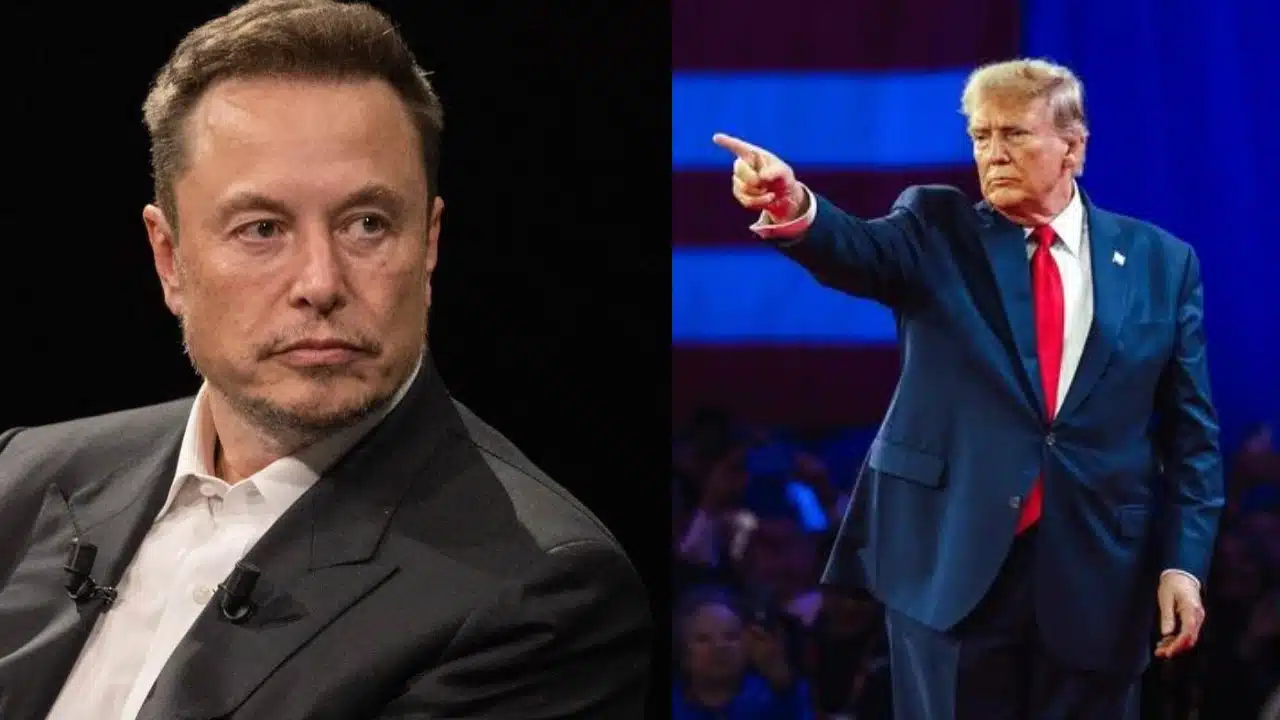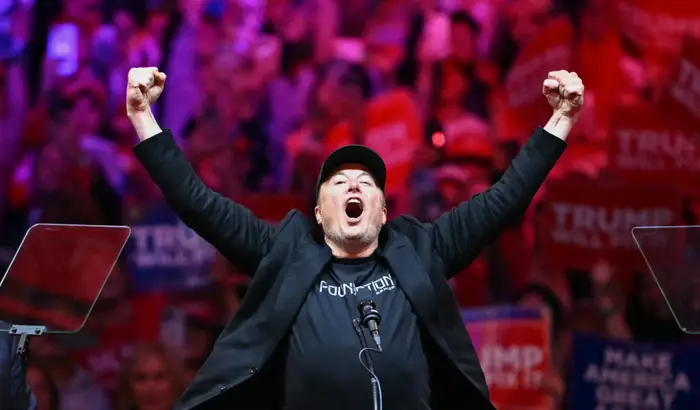Shortly after a sweeping victory for Donald J. Trump, it appears that his administration may already be backing down from its promise to give Elon Musk a prominent role in the new White House.
Musk has been a vocal supporter and probably an instrumental piece for the Republican candidate’s win this Tuesday. However, some transition officials believe that his involvement may be limited to providing software solutions rather than taking a formal position in the new administration.
They emphasize that Musk’s varied business interests constitute a roadblock as he would have to give up all of his shares in companies like Tesla (TSLA) and SpaceX. These investments have made them the world’s richest person and he does not appear willing to sell them to go into public service.
Musk’s Role Scaled Back from Head of Efficiency Commission to Writing Code
The people of America gave @realDonaldTrump a crystal clear mandate for change tonight
— Elon Musk (@elonmusk) November 6, 2024
Howard Lutnick, Trump’s transition team co-chair, briefly commented about what Musk’s role would be now that Trump has won. He emphasized that the head of SpaceX will be “adjacent to” the government instead of taking a formal role.
He further stated that Musk will be “writing software for the government and then giving the software to the government and helping the government.”
This is a significant shift from the initial campaign promises made by Trump. During multiple speeches, he stressed that Musk would take be handed wide-ranging power over the federal government, supposedly to help make the federal government more efficient.
Also read: Market Dynamics and the US Election: Preparing for Uncertainty
Trump said he would form a “government efficiency commission” chaired by Musk that would perform a “complete financial and performance audit of the entire federal government” and recommend drastic reforms.”
Lutnick’s comments now raise questions about how involved Musk will be in practice. Legal experts agree that he would have to sell many of his business interests to take a formal role in the administration and most believe that this is a highly unlikely move.
SpaceX and Tesla Have Deep Ties with the Federal Government
Scaling back Musk’s role is then a logical decision if he is unable or unwilling to divest his stake in government-linked companies. His business empire includes the crown jewels, Tesla (TSLA) and SpaceX, both of which have deep connections with federal agencies and international ties with controversial countries like China.
SpaceX, for example, has signed contracts valued at nearly $4 billion with agencies like the National Aeronautics and Space Administration (NASA). This figure increased during the Biden administration even though Musk was not fond of the current president.
Industry observers claim that SpaceX is silently becoming a monopoly as their rockets have no competition as Musk’s company is the only one that offers to launch commercial and government satellites via reusable vehicles. In addition, they are currently the only alternative for NASA to send resources and astronauts to the International Space Station.
Recently, the agency selected Musk’s company as the designated contractor to bring back the International Space Station to earth once its lifespan ends in a few years.
Tesla’s significant presence in China, which both political parties now view as America’s primary security threat and economic rival, presents another layer of complexity. During a visit to China earlier this year, Musk sparked controversy by describing Taiwan as an “integral part” of China, aligning with Beijing’s position on the disputed territory.
Moreover, Tesla’s significant presence in China can be viewed by lawmakers as a national security threat and a conflict of interest if Musk opts to take a formal position in the new White House as the Asian country is a direct adversary to American interests in many areas.
He also made some troublesome comments during his latest visits to the country including where he referred to Taiwan as an “integral part” of China despite the United States’ clear position that they are an independent territory.
Musk May Get Rid of Regulatory Roadblocks During Trump’s Tenure
If Musk chooses not to take a government job, which is the most likely scenario, his influence and connection with the Trump administration may still result in benefits for himself and his companies.
NBC News identified 19 different regulatory proceedings and ongoing legal battles that are currently affecting his businesses.
The majority of these disputes were brought up by Biden administration officials. The nature of the complaints varies widely, from environmental matters to allegations of racial harassment at some Tesla factories.
Richard Pierce, a law professor at George Washington University who specializes in government regulation, suggests that Musk would face fewer regulatory challenges under Trump.
“He would be in much less trouble in a Trump administration because Trump shares his hostility to regulation and regulators,” he argued.
Also read: Crypto Traders Should Prepare for the US Election: Here’s What You Need to Know
Musk has made some bold claims, a distinctive mark for both him and Trump, about what he can achieve for the US if he collaborates with the new administration. He said that he would be able to trim the federal government’s expenditures by $2 trillion – a proposal that former White House officials and economic experts have called “idiotic.”
Larry Summers, former Treasury Secretary, said that 15% of the federal budget is tied to government payrolls. This means that such drastic cuts would involve dismantling programs like Social Security and Medicare – both of which Trump has promised to protect.
“These people think it’s like some business. But here’s the problem: Only 15% of the federal budget is for payroll. So even if you took all the employees, every single person working for the federal government out, you couldn’t save anything like $2 trillion,” Summers stressed.
Musk’s Ties with China and Russia Have Raised Concerns
Beyond the practical challenges of implementing Musk’s proposed reforms, his international business ties and past communications with foreign leaders have raised national security concerns among lawmakers.
Sources speaking to NBC News on condition of anonymity expressed worry that Musk could push US policy in a direction that is favorable to his financial interests, particularly regarding China’s access to cutting-edge technology.
Adding up to these concerns, recent reports of Musk’s constant communications with the Russian President Vladimir Putin have also been cited by political observers as worrisome indications that his involvement in the new administration may not be beneficial for the country’s foreign policy.
These connections, combined with his public statements on geopolitical issues like the Ukraine war, which have been increasingly aligning with the Kremlin’s positions, have prompted additional scrutiny of his potential government role.
The complexity of these relationships brings up questions about how Musk could maintain his business interests while serving in any capacity that influences US policy.
Lutnick’s comments following Trump’s win may reveal the new administration’s true intentions. Even though Musk has been deeply involved in the campaign and may have been key to orchestrating this victory, his involvement could be limited as it would demand him to divest his stakes in the company that have made him who he is.
That said, Musk’s influence may have immediate benefits to his companies and could result in changes in how the United States deals with certain foreign policy matters. While a formal government role seems like a distant possibility, the head of SpaceX will likely operate behind the curtains throughout Trump’s four-year tenure and may help him reshape American policy in many ways.

